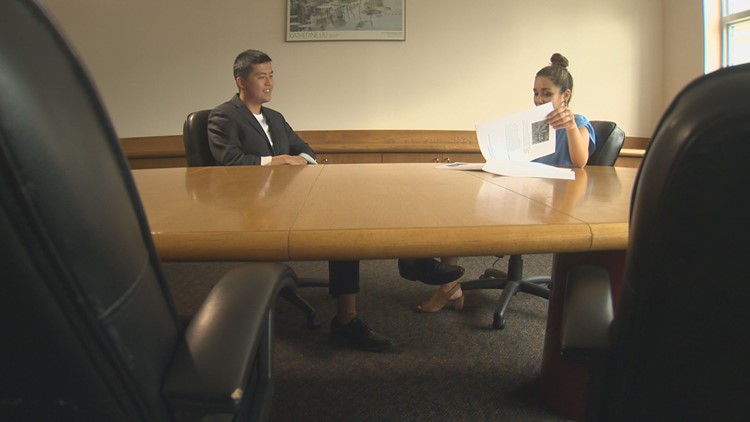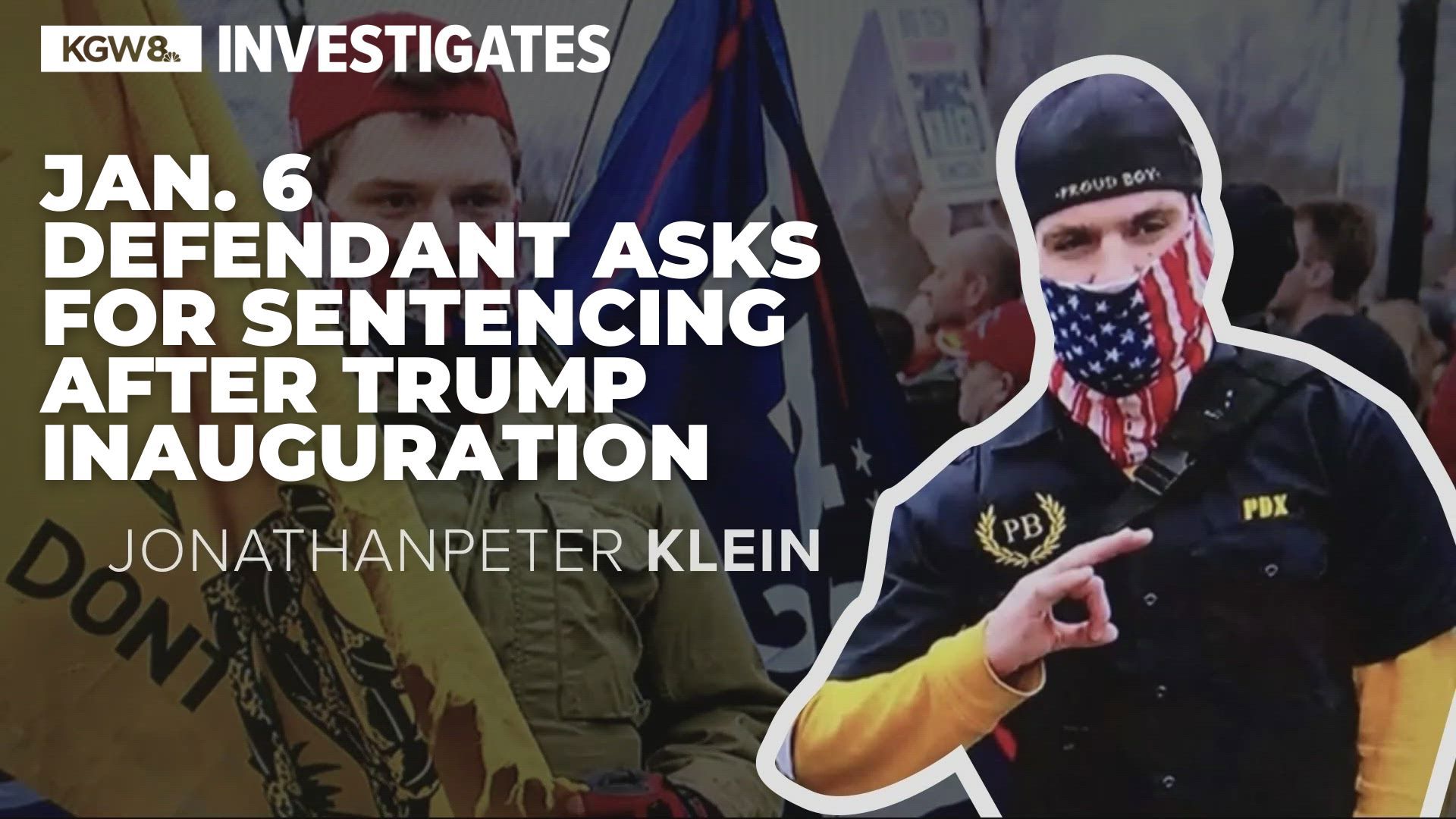PORTLAND, Ore. — Portland voters passed a 3% tax on recreational cannabis sales in 2016, and the ballot measure specified some of the tax revenue would be funneled to racial and social justice efforts.
Under that umbrella, tax revenue is awarded in the form of grants for developing minority-owned cannabis businesses, workforce development and criminal records expungement.
Thanks to a grant, Metropolitan Public Defenders hired Michael Zhang in 2018, a staff attorney in the Community Law Division, to host clinics on expungement.
KGW investigative reporter Morgan Romero sat down with Zhang to learn more about expungement efforts, why they're important and whether he feels the city can do more to help reverse the decades of negative impacts cannabis criminalization had on communities of color.
Zhang said he believed one of the issues with the ballot measure was its vagueness.
Zhang: As someone who lives in this city you can see that there are problems with drug addiction and over-policing. And as someone who works in this field I know a lot of that has to do with people not being able to find work because they have these criminal records. And they’re not able to find housing because they have criminal records.
A recent city audit found most of the tax revenue is going toward public safety. While those uses are allowed under the ballot measure, proponents of the tax haven’t been involved in the overall budget decisions and the City of Portland hasn’t reported on how it’s allocating the tax revenue. The audit says the allocations are being made in part to address shortages in the General Fund.
Romero: “So it’s not that they can’t funnel the funds toward police budgets and transportation budgets?”
Zhang: “I think the delineated causes were not linked to the money that was being used to patch the police and transportation departments’ budgets.”
Romero: “The money didn’t exist before, so you’re happy that it’s there in the first place?”
Zhang: Yeah, for sure. And I think Portland’s use of marijuana tax money is a good example of what proponents of legalization were hoping for: Instead of using state money to police cannabis use ... why not have it be a cash crop and tax it and you can use that tax to alleviate some of the harms that are systemic, not just to cannabis policing but in every facet of society.
Zhang applauds Portland voters for passing this initiative with popular consent and feels the city will be mindful of how they allocate money moving forward.
Due to the grant, Zhang can focus on clearing people’s criminal records, so they can be on a more level playing field when applying for housing and jobs.
Zhang: I think one of the elements of expungement that makes it really appropriate for the cannabis tax is that there’s corresponding expungement law that makes possession convictions, and especially marijuana possession convictions and even marijuana manufacturing and delivery convictions, eligible for expungement given other criteria. But at the same time there’s a very small portion of people who are eligible for this service actually seeking it out, mostly because Oregon expungement law is very difficult and complex. It’s complex to the point that the market rate for hiring a lawyer to do this on your behalf is well upwards of $1,000 going upward to about $3,000.
Zhang says Metro Public Defenders can do many more expungements now with less staffers. By going through community partners like the Alano Club and Urban League of Portland, they can host clinics where several people show up and get the legal service inexpensively.
Zhang: I think this cannabis tax represents a kind of restorative justice and in it is restorative justice not just for individuals but for entire communities. And so we wanted to partner with the organizations that were working in those communities and had the most direct contact with them. And we, in fact, wanted to have expungement clinics in their spaces rather than in ours.
Romero: What crimes can be expunged? Because the intention is expungement but it’s not just cannabis, although that’s a big one now that it’s legal. What other crimes qualify?
Zhang: So most misdemeanors: assaults, the lowest degree of assaults - assaults in the fourth degree, harassment and things like that. Possession of any substance is eligible. The things that are not eligible that we see pretty often are manufacturing or delivery of a drug that is not marijuana – goes in Schedule 2. Things that are also eligible are theft that don’t involve violence, basically, so theft of objects and money and cars but not burglary or robbery in most cases.
Romero: Bigger picture: How important is the work you do in expunging people’s records and the money from the cannabis tax?
Zhang: “It’s something that all our community partners ask for: expungement and fines and fees, resolving fines and fees with the court, those ended up being the ones we would continuously hear about. And part of the reason is because Oregon expungement law is so complicated that it’s not something these organizations that don’t have lawyers can figure out on their own.”
Background checks are the standard practice for most employers and landlords, and individuals with criminal records are often at a disadvantage – no matter how long ago the crime was.
Zhang: “Having a criminal record essentially makes you a social exile: You can’t find housing, you can’t find work. And what is there to do after that except to return to the same informal economies that produce that record in the first place?”
Romero: It’s kind of a second chance for people.
Zhang: Yeah, exactly. And it’s a second chance they have to earn because Oregon’s expungement law requires you to be a significant number of years – usually 10 years – removed from your most recent conviction.
You can’t have had any criminal interaction basically for a decade. And by that point, to my mind, you’ve proved that you are a different person. And so I would say that this expungement law doesn’t necessarily give people a second chance but it validates people when they have taken their second chance and they have demonstrated that they’ve earned this thing. And then it’s just our job to do the paperwork for it.



